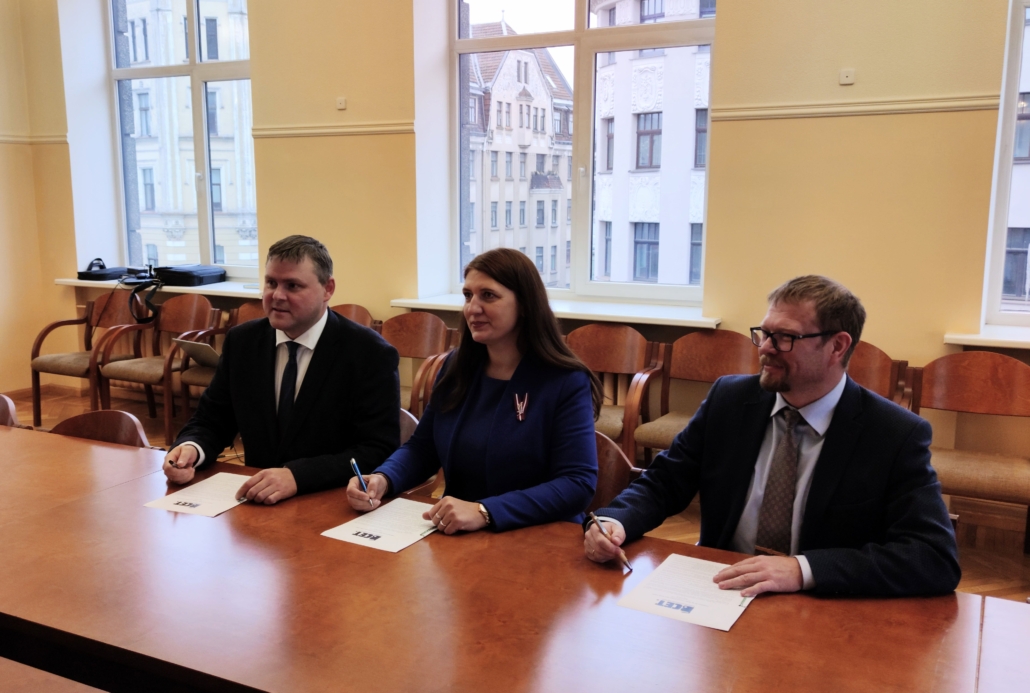Loodi Balti haridusametiühingute nõukogu
17. novembril 2022 toimus Riias Balti riikide haridusametiühingute kohtumine. Eesti Haridustöötajate Liidust osalesid kohtumisel EHLi esimees Reemo Voltri ja tegevjuht Aleksandr Tiidemann.
Kohtumine oli tulemuslik, sest loodi Balti riikide haridusametiühingute nõukogu. Loodud nõukogu eesmärk on omavahelist koostööd tihendada ning häid praktikaid jagada.
Edaspidi loodetakse regulaarselt kohtuda kaks korda aastas. Järgmine kohtumine on kavas juba märtsis 2023 Eestis.
Riias allkirjastati loodud nõukogu alusdokument:

Guidelines for the Baltic Council of Education Trade Unions
17th of November 2022
Riga, Latvia
- The Baltic Council of Education Trade Unions (BCET) was established in Riga on 17th November 2022, in accordance with the Cooperation Agreements (the Agreements) signed on 9th May 2019.
- The members of the BCET are the Lithuanian Education and Science Trade Union (LESTU), the Latvian Education and Science Workers’ Trade Union (LIZDA) and the Estonian Education Personnel Union (EEPU), hereinafter collectively referred to as the Member Countries, and each individually referred to as a Member Country.
- The Member Countries shall be represented, and their decisions shall be taken by their respective leaders in accordance with their constitutive documents or by their authorized persons.
- Besides the Heads, other persons invited by a Member Country may attend meetings of the BCET, up to a maximum of 5.
- A trade union in the education sector in any other country may be given the role of an observer by the decision of the members of the BCET.
- The BCET is established to ensure the fulfilment of the obligations of the Agreements signed on 9th May 2019:
- to share knowledge, experience, challenges, and information in the organization of joint educational activities;
- to carry out joint activities and organize international meetings to jointly address emerging issues in the education sector;
- setting up joint working groups to address issues of concern and collaborating with trade union experts who can share their experience with other trade union members to enhance the professional knowledge and achievements of their members;
- to carry out joint projects to help the countries get to know each other’s cultural specificities more closely;
- jointly carry out international trade union projects and be partners in these projects;
- the pursuit of other current objectives which are not provided for in the Agreement but are of interest to the Member Countries.
- The BCET shall meet at least twice a year on a rotating basis in each of the Member Countries unless the Member Countries decide otherwise by agreement.
- The meeting shall be chaired, and the material prepared by the host BCET Member Country, unless the Member Countries decide otherwise by agreement.
- The meetings of the BCET may be attended by invited guests from the authorities of the host Member Countries, other trade unions, scientists, or experts.
- The BCET may set up working groups of their representatives to achieve the objectives and fulfil the obligations set out in the agreements.
- Decisions of the BCET shall be taken by consensus.
- The host Member Country of the BCET shall bear the full cost of the meeting unless the Member Countries decide otherwise by agreement.
- Meetings of the BCET shall be held in English and Russian. The Host Member Country shall provide translation to and from these languages. Meeting documents shall be prepared in English.
- Membership of the BCET shall be without prejudice to any other legal or political obligations of the country.
Latvian Education and Science Worker‘s Trade Union (LIZDA) Inga Vanaga, President
Lithuanian Education and Science Trade Union (LESTU) Egidijus Milešinas, President
Estonian Education Personnel Union (EEPU) Reemo Voltri, President


